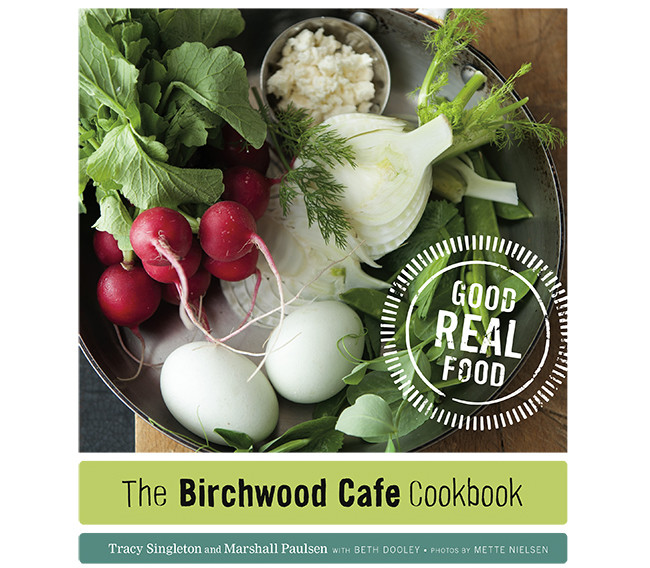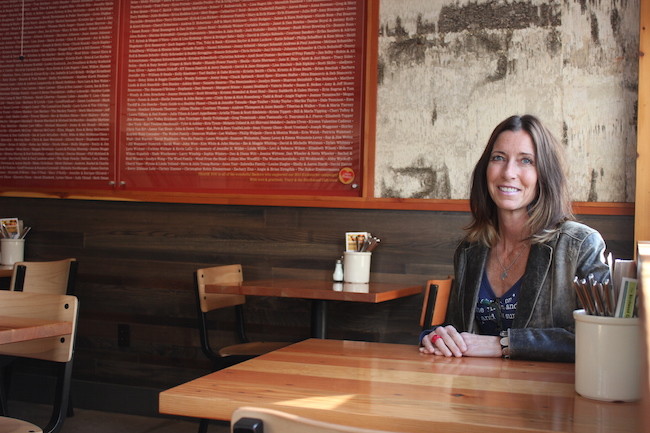
Reviewing a new cookbook is fun. It’s one of my favorite ways to experience food, to get to know writers, to rethink what’s possible in my kitchen and on my table.
But here’s what a week of cookbook reviewing usually looks like at my house: odd dinners served at odd times because nobody’s in the mood for steak pizzaiola with strawberry mochi (or whatever), and it doesn’t fit the season or the weather, but it’s the book’s signature recipe, so eat up, kids. Then there are the grocery lists that take me to three stores and fill up the pantry with little odds and ends of spices and flours and sweeteners that will never really go bad, so I’ll never really have a good excuse to just throw them away already. And, of course, the leftovers that stretch into next week and eventually end up feeding the compost juggernaut.
And the dirty dishes. Mountains of dishes. Well, I can’t blame the cookbooks for that.
Usually, at the end of the week, I’ve learned something, we’ve eaten some good food, and everybody’s happy that we get to go back to our usual rotation. (Nobody has ever complained about taco Tuesdays and Friday night pizza.) But The Birchwood Cafe Cookbook (Minneapolis: University of Minnesota Press, Nov. 1, 2015) … ? It just slid into our lives, as if there was already a space on the shelf just waiting to be filled. I picked out a week’s worth of recipes, matching the hard days with the easy recipes, and vice versa, exactly as I usually do. Then I looked at the ingredient lists and said, “Huh. All we really need is a lot of heavy cream.” And who can complain about that?
Because I had — mostly — picked out recipes from the “Autumn” and “Dusk” chapters (it’s arranged chronologically), nearly everything we needed was in our CSA box (and therefore also plentiful at farmers markets and inexpensive in grocery stores around now), in our freezer, or in our pantry. And I had no problem slotting the recipes into our lives. These were all foods that we wanted to eat together, as a family, after a busy day. They were nourishing, but not heavy; thoughtful but not fancy; comforting, but not childish.

And that is exactly why The Birchwood Cafe — the restaurant, not the book — has survived, thrived, grown, and earned a spot in the pantheon of Minneapolis dining over the past 20 years. This is food we all want to eat. It is, in the words of co-founder Tracy Singleton (above), “good real food.” That’s the motto she has emblazoned on the restaurant itself and on the minds of her staff and regulars.
Good real food is at the heart of the restaurant’s founding story, which began when as a server at Lucia’s, young Tracy discovered real food after a lifetime of “SnackWell’s and Diet Mountain Dew,” as she describes it. That led her to want to share real food with more people — in a little cafe across town. Later, a clamoring from the neighborhood for yet more expanded that little cafe from a coffee shop and bakery into a full-fledged restaurant, and then into its Kickstarter-funded expansion in 2014.
Back in the mid-nineties, a food culture that cared about “real food” and connections with farmers was “just starting to bubble up,” as Singleton remembers. At the time, she defined “good real food” as food that was made from scratch by people you know, and grown by farmers you or the cook trusts.
That still holds true, of course, but now she and many people who have made the trek from those early, Moosewood-inspired days to the political reality of today recognize that good food touches much more than than just the eater, the cook, and the farmer.
“It’s a whole way of thinking about the whole food system, with every step taken into account,” Singleton says. “Was the food raised sustainably? Are the people who made it taken care of? Knowing each step of the way what happened — all that is part of good real food.”

The cookbook, written with chef Marshall Paulsen and local food guru and writer Beth Dooley (above), includes profiles of many of the people — from Fischer Family Farms Pork to Ferndale Market to Whole Grain Milling. It’s a familiar trope now — know your farmer — but it’s not one we should tire of any time soon.
Singleton takes her advocacy beyond the kitchen and tables of her restaurant. She is active in the True Food Chef Council, which is bringing local food to Minneapolis Public Schools and in Right to Know Minnesota, which calls for the labeling of GMO foods. She has talked with Mayor Betsy Hodges about the Working Families Agenda and to U.S. senators about GMOs. It’s all part of the same system that we’re partaking of when we put a fork into The Birchwood’s famous carrot cake (recipe not in the book, sorry).
She’s gotten a little flak, you may have heard, for publicly supporting the Black Lives Matter movement and marriage equality via the restaurant and its website. “People told me, ‘Stick to food, not politics,’ but how can you say that? Food is political,” she says. “When you eat three times a day, you have a choice. You’re choosing the kind of world you want to live in. The world would be a better place if we served more real food to more people.”

After a week of living with my family in a little Birchwood-inspired food bubble, I have to agree. We ate chicken Marsala, made from a recipe that will now become my go-to hearty fricassee. We ate autumn vegetable quiche that didn’t skimp on the eggs or the cream or the vegetables, and didn’t suffer when I substituted the leeks I had on hand for the cauliflower I didn’t. We ate turkey burgers topped with creamed kale, and while I don’t need a recipe for turkey burgers, I may never eat them without creamed kale again. We ate two kinds of creamy soups, and I discovered that lemon hazelnut cookies might be my favorite kind of cookie ever (for now).
And both the savory waffles — a Birchwood menu mainstay — we tried, one with corn and basil (the summer version) and one with sweet potato and kale (the fall version), were so good that I think I’m going to add waffle Wednesday to the weekly rotation. Now that’s a pretty good week of good real food.


